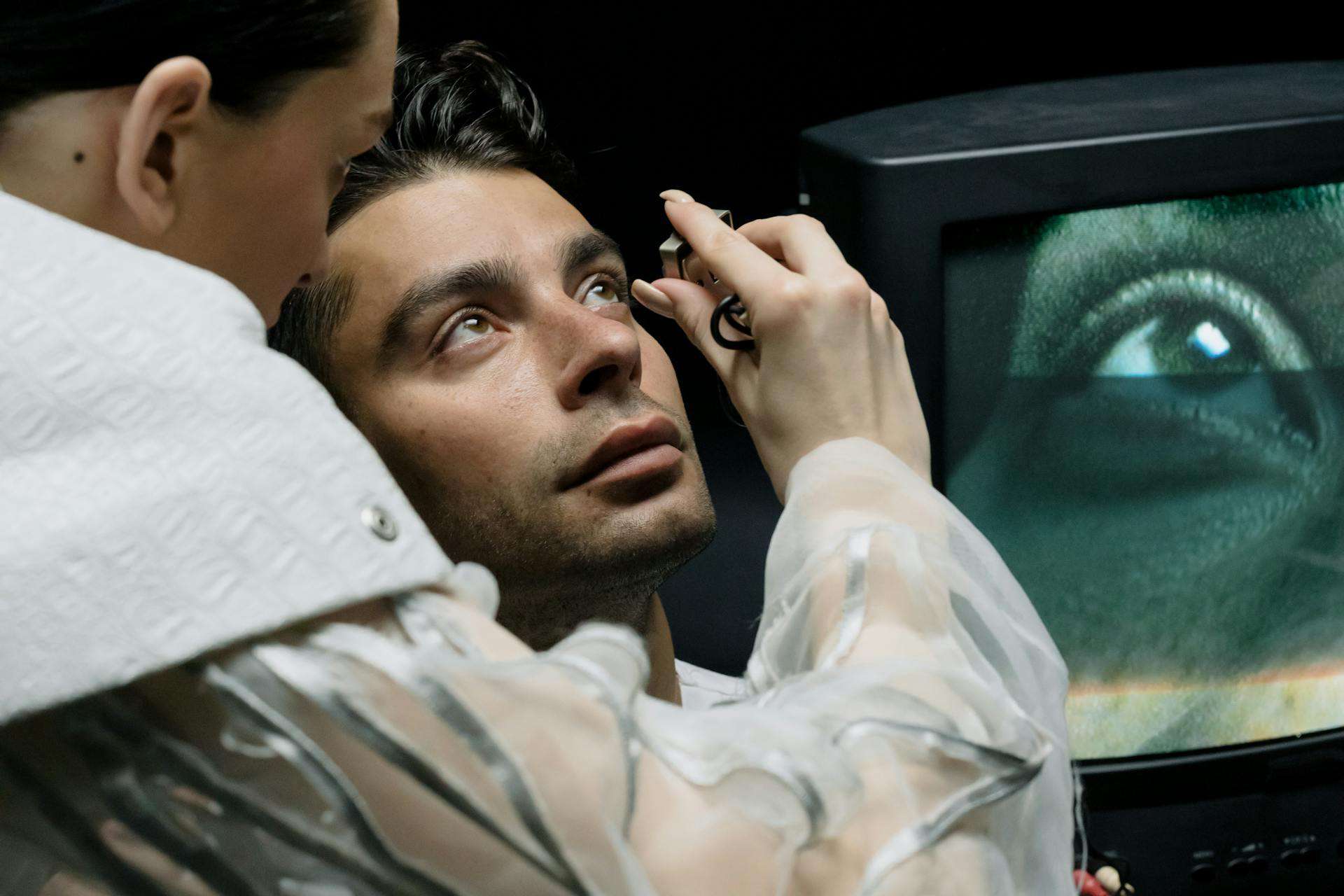When a child experiences difficulties with reading, it is natural for parents and educators to wonder if problems with their eyes or vision might be the underlying cause. In such cases, it is advisable to seek a professional evaluation from an eye doctor to assess the integrity of the visual system. Reading problems can often be attributed to a range of eye-related issues, including convergence insufficiency, oculomotor dysfunction, and vergence disorders. One effective treatment option for these conditions is vision therapy, a structured program aimed at improving visual skills and enhancing reading abilities. In this blog, we will explore how vision therapy can help address reading problems and the potential benefits it offers.
Can Vision Therapy Help Reading Problems?
Yes, vision therapy can effectively address reading problems by targeting issues like convergence insufficiency and oculomotor dysfunction. Through customized exercises, it strengthens visual skills, improving eye coordination, tracking, and processing abilities for enhanced reading fluency and comprehension.
The Connection between Reading and Vision
Reading difficulties can arise from various vision-related factors that affect the ability to process and interpret written information. Here are a few common vision problems associated with reading difficulties:
Convergence Insufficiency: This condition refers to the inability of the eyes to work together efficiently when focusing on nearby objects, making it challenging to sustain clear and comfortable vision during reading.
Oculomotor Dysfunction: Oculomotor skills involve the coordination of eye movements for smooth, accurate tracking and scanning. Dysfunction in these skills can lead to difficulties following lines of text, losing one’s place, or skipping words or lines while reading.
Vergence Disorders: The ability of the eyes to turn inward or outward (vergence) is crucial for maintaining binocular vision. When there is a deficiency in this area, it can impact depth perception, making it harder to comprehend and navigate text.
The Role of Vision Therapy
Vision therapy is a comprehensive treatment approach designed to improve and enhance visual skills and processing abilities. It involves a series of customized activities and exercises prescribed by a trained eye care professional, usually an optometrist or an ophthalmologist. The primary goal of vision therapy is to optimize visual function, which, in turn, can positively impact reading performance.
Here’s how vision therapy can help address reading problems:
Eye Teaming and Tracking: Vision therapy exercises can strengthen the muscles responsible for eye coordination, allowing for improved eye teaming and accurate tracking of text while reading. By enhancing these skills, the child can reduce visual fatigue, maintain focus, and follow lines of text more smoothly.
Visual Processing Skills: Vision therapy targets the enhancement of visual processing abilities, such as visual discrimination, visual memory, and visual sequencing. These skills play a crucial role in reading comprehension, allowing the child to recognize and interpret letters, words, and sentences more efficiently.
Focus and Flexibility: Vision therapy includes exercises that improve the ability to quickly and accurately shift focus between near and far objects. This skill is essential for efficient reading, particularly when transitioning between different points on a page or when shifting focus from a book to the board and back.
Potential Benefits of Vision Therapy
Engaging in vision therapy can lead to several positive outcomes for children with reading problems:
Improved Reading Fluency: Through consistent and targeted vision therapy exercises, children can develop smoother eye movements and increased reading speed, leading to enhanced reading fluency.
Enhanced Comprehension: By strengthening visual skills, such as tracking, scanning, and visual memory, vision therapy can facilitate better comprehension of written material. Children may experience improved recall and understanding of what they read.
Reduced Eyestrain and Fatigue: Vision therapy can help alleviate eye discomfort, fatigue, and headaches associated with reading difficulties. When visual skills are honed, reading becomes less taxing and more enjoyable.
Collaborative Approach
It is essential to note that vision therapy does not replace traditional reading instruction, but rather complements it. Integrating vision therapy with educational interventions, such as tutoring, specialized reading programs, or individualized education plans (IEPs), can offer a comprehensive approach to addressing reading difficulties.
A collaborative effort involving eye care professionals, educators, and parents can ensure that a child’s visual needs are properly addressed. Regular communication and coordination between all parties involved can help track progress and make necessary adjustments to the therapeutic approach.





